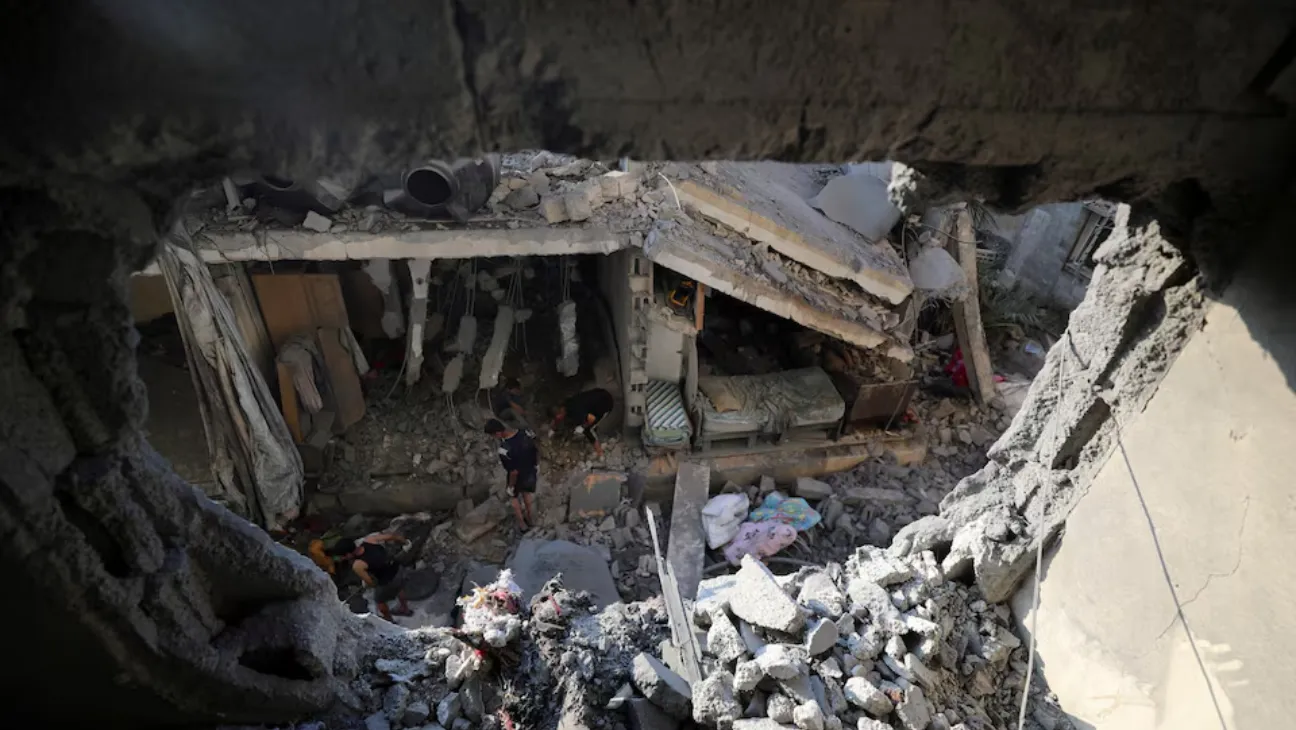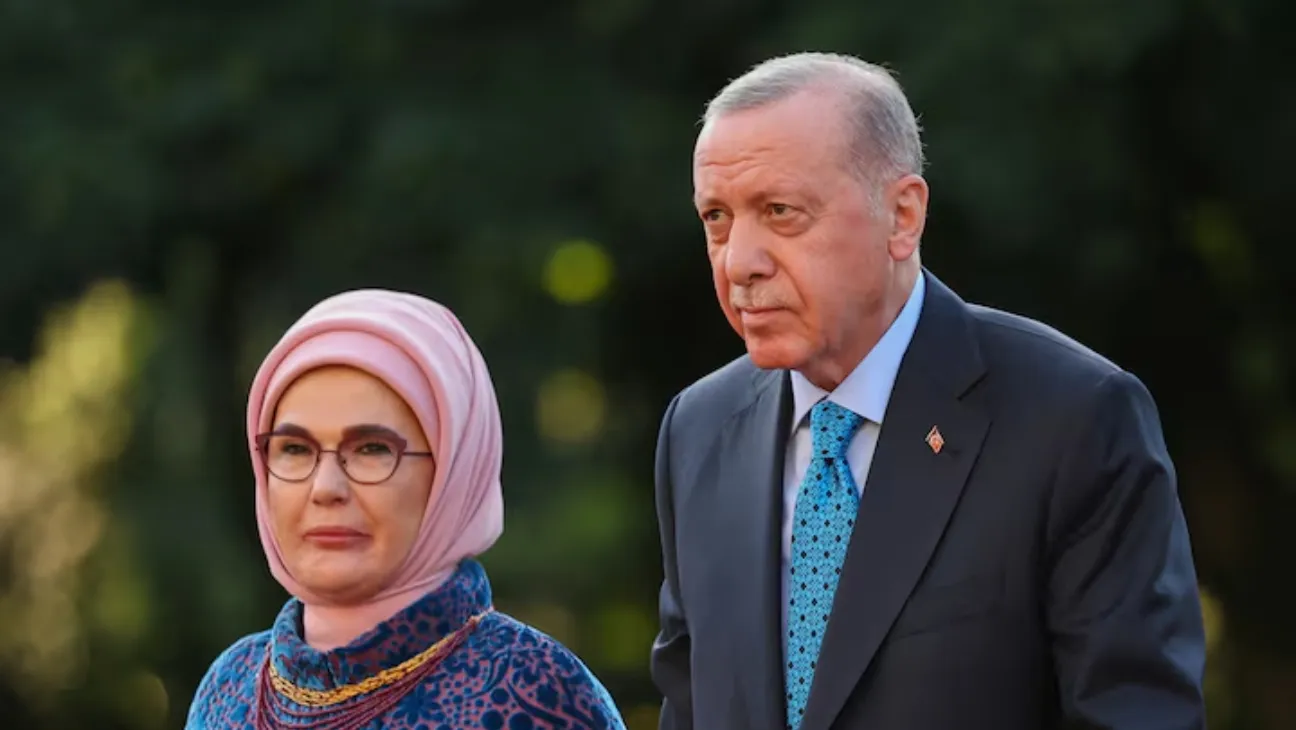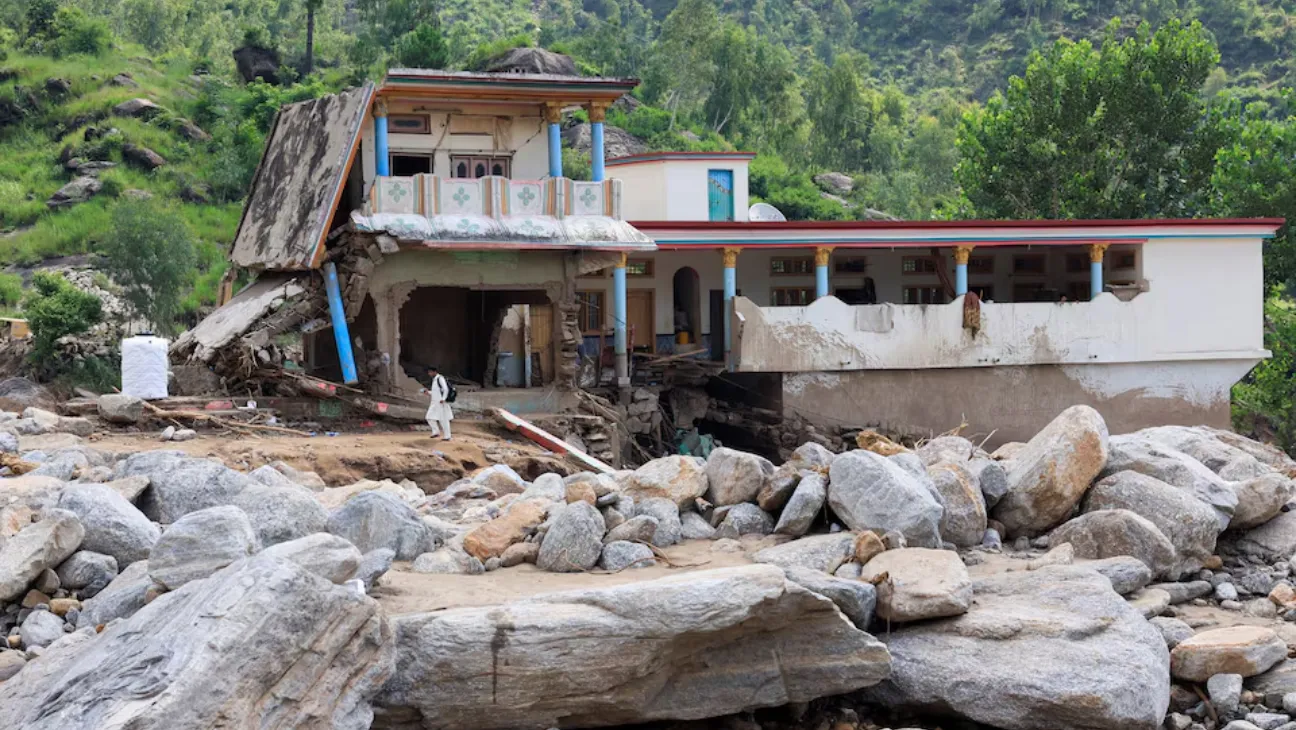Seven members of the Al-Shaer family, including five children, were killed while sleeping in their home in Gaza City following an Israeli airstrike overnight. Freelance journalist Wala al-Jaabari, her husband, and their children died during one of the deadliest 24-hour periods in recent weeks, with over 100 reported deaths, according to Gaza health officials.
Wrapped in white burial shrouds outside the ruins of their house, the family’s bodies lay marked with handwritten names. Blood seeped through the fabric as relatives mourned nearby.
“This is my cousin. He was 10,” said Amr al-Shaer, holding the child’s body. “We dug them out of the rubble.”
Another relative, Iman al-Shaer, said the family had not eaten before the attack. “The children slept without food,” he told reporters.
The Israeli military did not directly comment on the strike that killed the family. It said its air force targeted 120 locations across Gaza, including tunnels, booby-trapped buildings, and what it called “terrorist infrastructure.”
Some neighbors survived only because they were outside, searching for food.
Gaza’s health ministry reported that 10 more Palestinians died from starvation overnight, bringing the total number of hunger-related deaths to 111, most occurring in recent weeks. The World Health Organization confirmed 21 of those deaths were children under five.
From March to May, food deliveries into Gaza were almost entirely halted, the WHO said. While some aid resumed, the level of distribution remains well below what’s needed to address the crisis.
On Wednesday, a coalition of 111 humanitarian groups including Mercy Corps, Refugees International, and the Norwegian Refugee Council issued a joint statement warning that mass starvation was expanding. They said thousands of tons of food and medicine sit just outside Gaza but remain inaccessible due to entry restrictions.
Israel, which blocked all supplies to Gaza in March before reopening limited access in May, maintains that aid is allowed in and insists that any delays are due to militants hijacking aid or inefficiencies within humanitarian agencies. Israeli spokesperson David Mercer said on Wednesday that 700 truckloads of aid were idle inside Gaza. “It is time for [the UN] to pick it up and stop blaming Israel,” he said.
Aid agencies offer a different view.
Ross Smith from the UN World Food Programme said delivery remains extremely difficult. “We need to have no armed actors near our distribution points, near our convoys,” he said. Without these guarantees, safe distribution is nearly impossible.
The desperate scramble for food in Gaza has turned deadly, with hundreds of Palestinians reportedly shot near aid sites since May. Aid groups are sounding the alarm, saying a combination of Israeli restrictions and constant violence is making it nearly impossible for them to work.
Adding to their fears, Israel’s UN Ambassador Danny Danon announced a new policy that will limit international UN aid workers to one-month visas, a move critics say will severely hamper oversight and long-term relief efforts.
This all comes as the war nears the two-year mark. It began when Hamas militants stormed southern Israel, killing around 1,200 people and taking 251 hostages. In the time since, Israel’s military response has killed nearly 60,000 Palestinians, according to health officials in Gaza, leaving much of the territory in ruins and forcing most of its people from their homes.
Ceasefire talks continue without resolution.
U.S. Middle East envoy Steve Witkoff is expected to meet with European and regional leaders this week to push forward a 60-day truce proposal. The plan, backed by Qatar, Egypt, and the United States, would include the release of some of the 50 hostages still believed to be held in Gaza.
No breakthrough has emerged since the collapse of a March ceasefire. A senior Palestinian official told Reuters that Hamas may respond soon, but only if there are revisions to key terms, including Israeli military withdrawal timelines and aid distribution mechanisms.
Israeli President Isaac Herzog visited troops in Gaza on Wednesday, saying “intensive negotiations” were underway. “I hope we’ll hear good news soon,” he said.
Within Israel’s governing coalition, far-right members continue to resist any ceasefire that does not involve Hamas’s complete destruction.
“If I come to think, heaven forbid, that this is about to end with us surrendering instead of with Hamas’s absolute surrender, I won’t remain in the government for even a single day,” Finance Minister Bezalel Smotrich said during a radio interview.
For families like the Al-Shaers, the political debates and diplomatic efforts feel distant. Their final night was quiet, hungry, and then suddenly gone.









